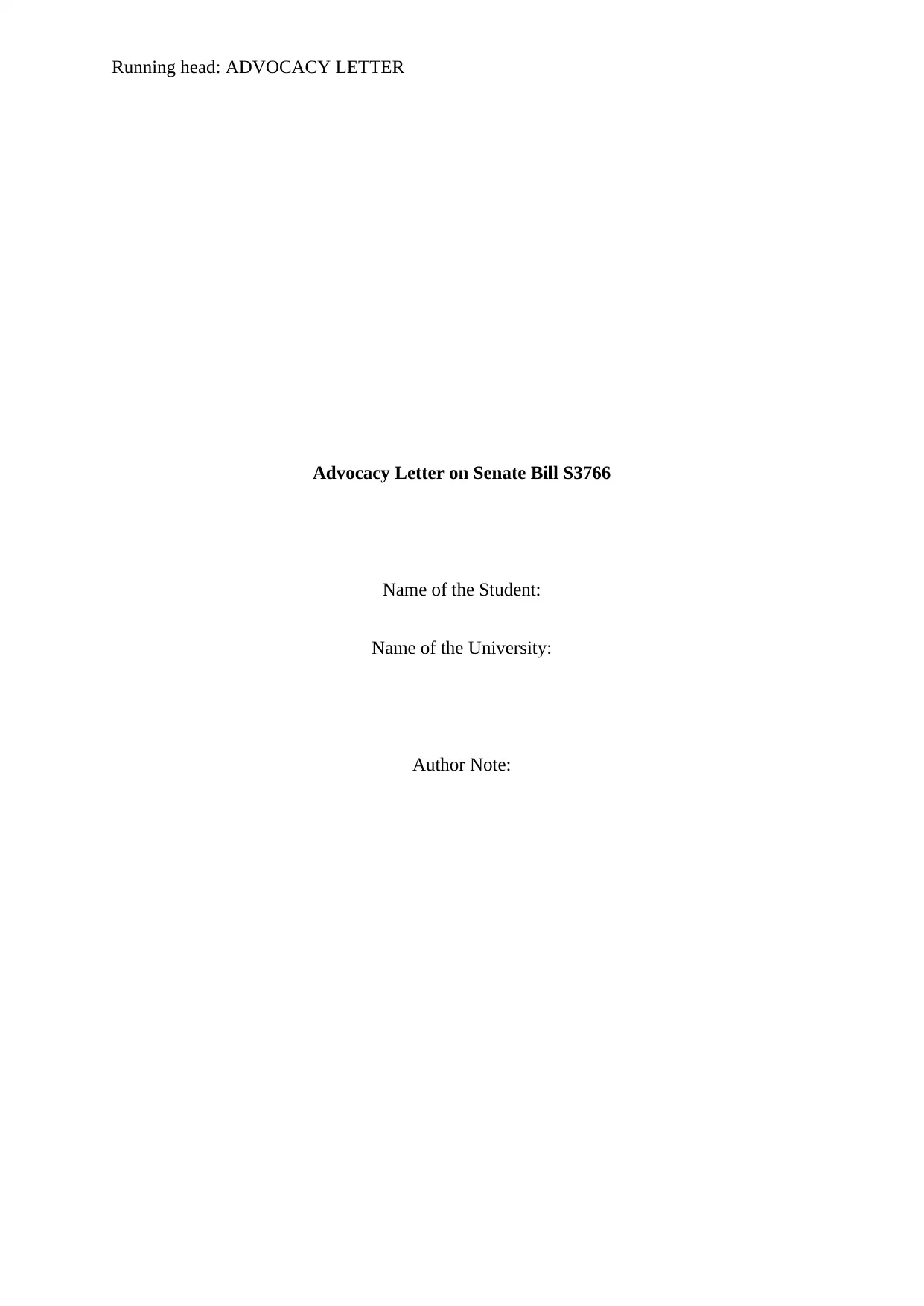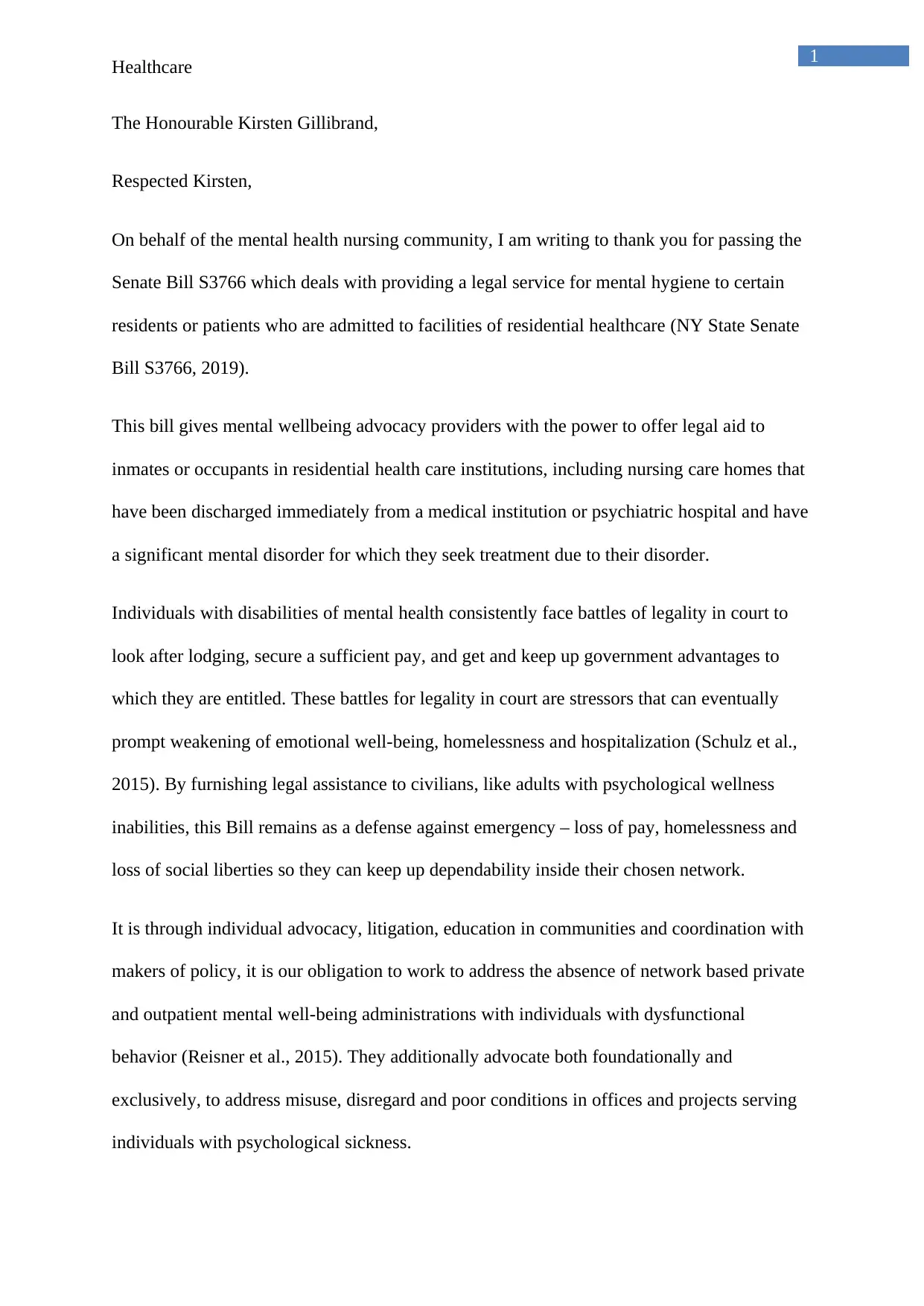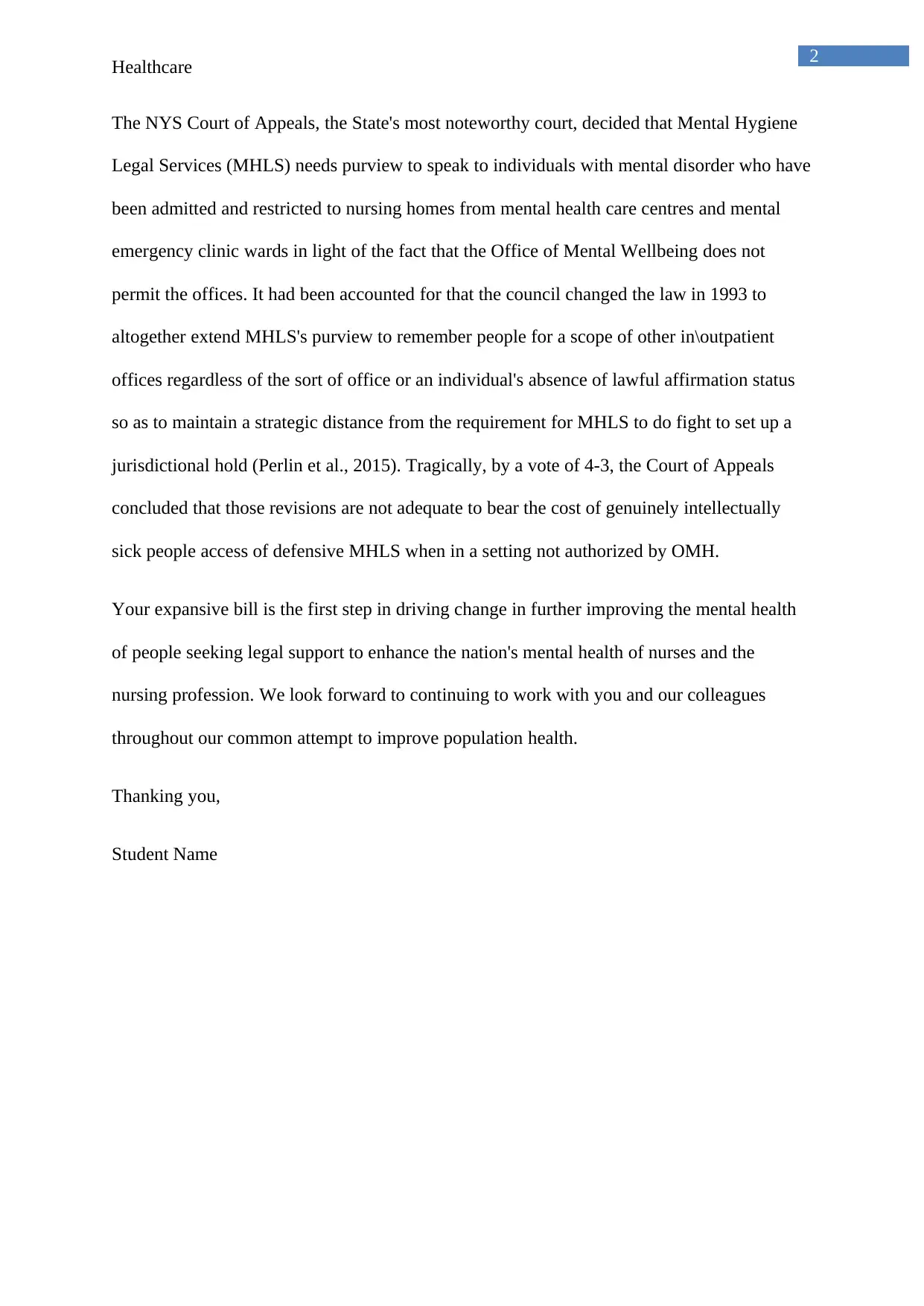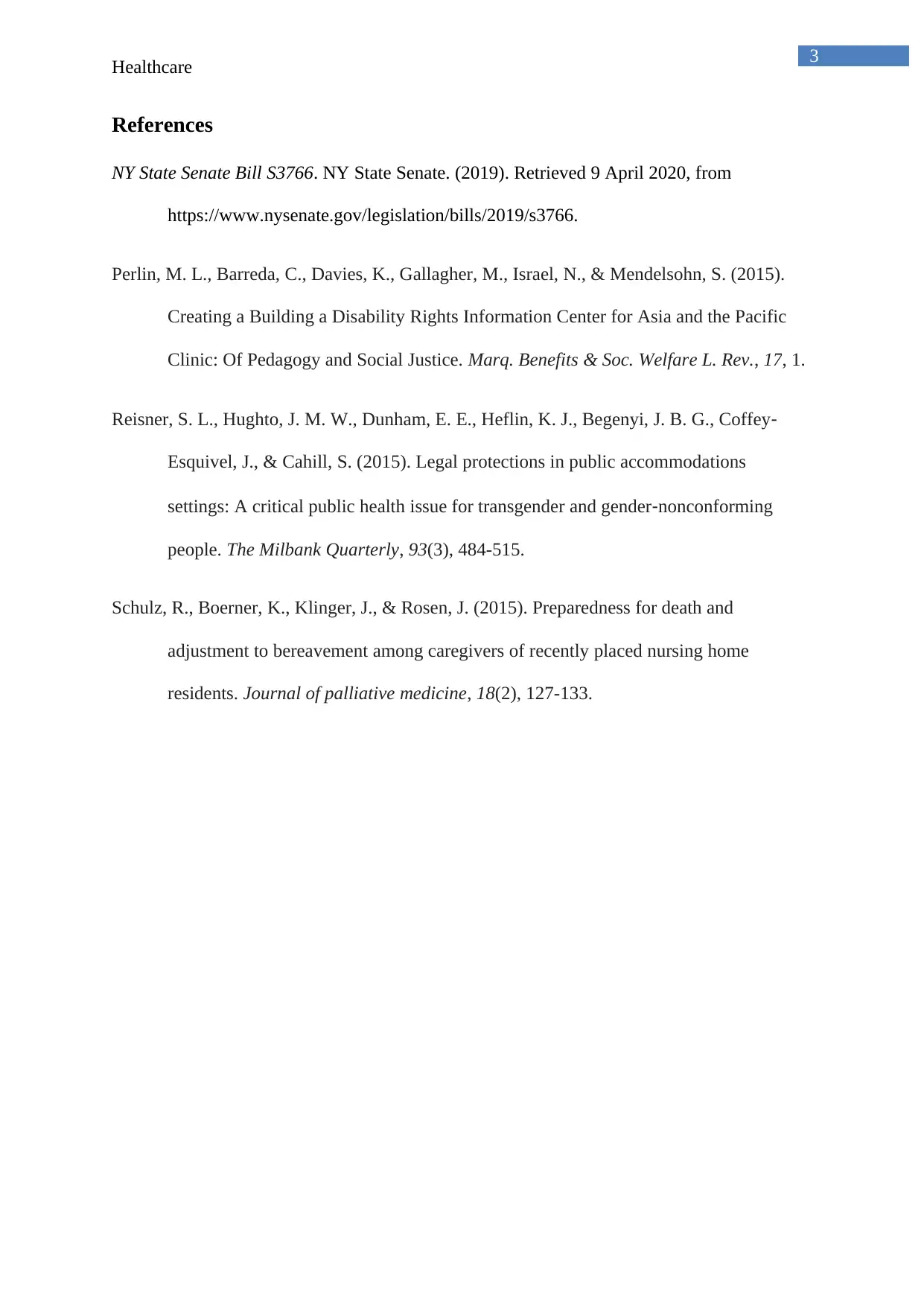University Advocacy Letter on Senate Bill S3766 - Mental Health
VerifiedAdded on 2022/08/23
|4
|777
|13
Homework Assignment
AI Summary
This assignment is an advocacy letter written on behalf of the mental health nursing community, expressing support for Senate Bill S3766. The bill aims to provide legal services for mental hygiene to residents in healthcare facilities, including those discharged from medical institutions or psychiatric hospitals with significant mental disorders. The letter highlights the importance of legal assistance in addressing stressors like homelessness, loss of pay, and the loss of social liberties. It emphasizes the role of advocacy in improving mental health services and the need for expanded legal support for individuals with mental health disabilities. The letter references the NYS Court of Appeals decision and the need for the bill to improve the mental health of people seeking legal support to enhance the nation's mental health of nurses and the nursing profession.
1 out of 4





![[object Object]](/_next/static/media/star-bottom.7253800d.svg)